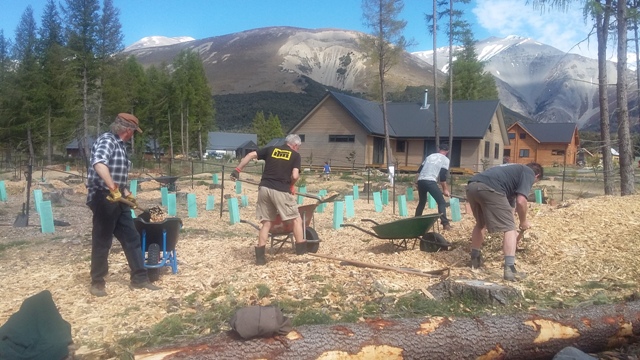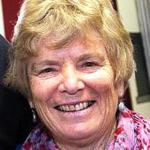
This quote from one of the greatest 20th century scientists got me thinking:
“Each of us is here for a brief sojourn; for what purpose he knows not, though he sometimes thinks he feels it. But from the view point of daily life – without going deeper – we exist for each other; in the first place, for those on whose smiles and welfare all our happiness depends, and next, for all those unknown to us personally, with whose destinies we are bound up by the tie of sympathy. A hundred times every day I remind myself that my inner and outer life depends on the labours of others, living and dead, and that I must exert myself in order to give in the same measure as I have received and am still receiving.”Source: The World As I See It - Albert Einstein
We associate Albert Einstein with the theory of relativity. But obviously he did a bit of pondering about life as well!
I’m really struck by the fact that he said his ‘inner and outer life depends on the labours of others, living and dead.’ Let’s unpack that a little.
Life is a given
The fact that I was born at all was not my decision – and that’s the same for everyone. I was born a female, to young parents, and delivered by an unknown (to me) doctor or nurse. My mother said she held me in one arm, and the Plunket Book by Truby King in the other. The book told her how to care for babies. (I never met Truby King of course, but he obviously had a big influence on my early years.)
Most people who had input into my early life I either scarcely remember, or have no idea who they were. Through the years, the food I’ve eaten, the clothes I’ve worn, the books I’ve read, music I’ve listened to, games I’ve played, work I’ve done, equipment and furniture I’ve used, have all had input from countless many people whom I don’t know and in most cases I have no idea about.
It’s the same for all of us.
Going it alone
So much of our lives is made up of the contributions of others, most of which we take for granted. We can’t be completely independent, even if we tried to be. If we took the barest minimum of utensils and food, and tried to live off the land, on our own, we would find that we were dependent on others for the items that we did take with us, and most of us would not have the resources to survive, either mentally or physically.
One young man tried to do just that, by going into the wilds of Alaska. He survived for several months, but ended up taking refuge in a decrepit bus left by an old road.Sadly, he died there, having eaten something that was poisonous, despite his attempts to be thoroughly conversant with what was edible and what wasn’t. (Earlier he had tried to go back to ‘civilisation’ but hadn’t allowed for the fact that the river he had crossed earlier when it was low, was then too high for him to attempt to cross. That was another area in which he lacked vital survival knowledge.)You can read his story in the compelling book, ‘Into the Wild’, written by a journalist, using the diaries found in the bus.
Others have tried to do something similar, and even if they try in more benign environments, the longer they are on their own, the harder it is for them to survive and preserve a sound mind. Their minds too have been shaped by others, and whatever resilience they may have developed has usually been influenced by many other people.
[There have always been hermits in the Christian tradition through the centuries, but usually these are linked with a Christian order or group, and as these hermits became known, they were frequently visited by pilgrims and seekers. These hermits were not seeking a solitary life in order to be independent, rather they were seeking a closer relationship with God.]
On their own, involuntarily
Sometimes people are on their own, not by choice, but through circumstances. These people can struggle with their loneliness, and need the input of others. We are created for relationship and when that is denied or unavailable, the loss of human interconnectedness can be a big burden.
One pioneer wife in the New Zealand back-country in the 19th century was left on her own for months at a time on a high-country sheep station, while her husband was away working on another station. She used to read the Bible to find company in its pages, but after ten years of such isolation she eventually became mentally deranged, and had to be committed to an institution.
People who have been incarcerated, sometimes for years, have depended on the input others have provided previously in order for them to retain sound minds. Terry Waite is an example of someone who was in solitary confinement for many years, and who had to bring to mindwhat he had memorised in the past; words from Scripture, songs and hymns, poetry etc, to help him remain sane. In this way, and through prayer,he drew on the input others had had into his life, and on the relationship he had with his God.
Giving life
Einstein is also aware that life is not only receiving but also involves giving to others. He says, “we exist for each other.”
He then writes “that I must exert myself in order to give in the same measure as I have received and am still receiving…” How often do we think about the nature of the input we have into the lives of others? Naturally those of us who are parents, or grandparents, are very conscious of the influence we have on the lives of our descendants, but what about people we have only a brief encounter with, or those who are unseen? What about those who benefit from the jobs we have, or are affected by our purchases, or the travel we undertake, or the leisure activities we engage in?
Paul the Apostle said, “You are not your own, you are bought with a price,” reminding Christianswhose we are. There is always a tendency for humans (including Christians) to want to be ‘masters of their fate, captains of their own souls’. But it is simply not possible to totally determine our own future or lifestyle.
Humanly-speaking, we are interdependent, relying on multiple ways in which others have input into our lives. Spiritually speaking, we are also interdependent, and as ‘living stones’we make up together with our fellow Christians the ‘temple’ of the living church throughout the world.
Total independence is a myth – and trying to be totally independent leads to loneliness, and a shrivelled humanity.
.jpg) Although Liz Hay lives in a small mountain village, she relishes many connections with others who live in or visit the village, and the opportunities to have time together. She’s found a small place has a much bettercommunity life than a suburban neighbourhood may have. She also values family and friends coming to visit and enjoy the environment of her mountain world.
Although Liz Hay lives in a small mountain village, she relishes many connections with others who live in or visit the village, and the opportunities to have time together. She’s found a small place has a much bettercommunity life than a suburban neighbourhood may have. She also values family and friends coming to visit and enjoy the environment of her mountain world.

Liz Hay rejoices in living in a beautiful part of God’s creation in a high country mountain basin; and she also rejoices in hearing stories of God at work in people’s lives. One of her favourite activities is reading fascinating biographies that illustrate the wonderful ways God works uniquely with each person.